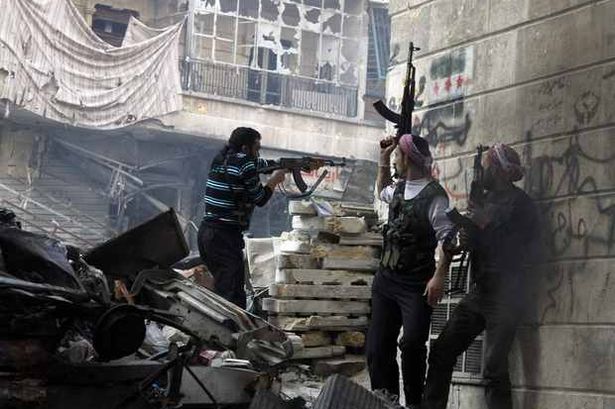“The International System Lacks Many Of The Stabilizing Elements That Have Helped Preserve Peace In The Past”
President Obama’s foreign policy strategy has long been clear: sanctions, containment, diplomacy, no boots on the ground unless absolutely necessary and a reluctance to arm those fighting regimes we dislike for fear that weaponry will eventually be used against us. David Rothkopf, editor of Foreign Policy, sees flaws in this mindset, though he gives the President credit for the relatively brisk U.S. economic turnaround in the wake of the Great Recession. A few exchanges follow from the Reddit AMA Rothkopf just conducted.
_______________________________
Question:
Off the top of your head, greatest threat to world peace?
David Rothkopf:
It is tempting to say that the greatest threat to world peace is inequality or imbalances that create deep social tensions. That can certainly be a contributing factor. But just as often the threat is a leader or group that seeks to take advantage of instability or lack of order. Right now, there are many places in the world that are at risk on that front…because the international system lacks many of the stabilizing elements that have helped preserve peace in the past.
_______________________________
Question:
What do you feel has been the Obama administration’s biggest foreign policy success thus far? Biggest failure or missed opportunity?
David Rothkopf:
The biggest success of the Obama administration has been helping to engineer the U.S. economic recovery. The biggest failure has been an unwillingness to address–with a clear strategy–threats to stability in the Middle East and Ukraine.
_______________________________
Question:
Assuming there is no congressional veto override of the existing temporary agreement, what are the chances of a lasting nuclear enrichment agreement between Washington and Tehran between now and the end of the Obama administration? Could Iran be trusted to keep such an agreement if one is made?
David Rothkopf:
On Iran, a deal is likely between the US and Iranian government. Whether it actually constrains the Iranians from developing nuclear weapons in the long run is another issue–but it is certainly a goal worth trying to achieve. That said, Iran has caused a lot of problems for three decades without having any nuclear weapons and the deal will not do much to address that aspect of its foreign policy.
_______________________________
Question:
Is inaction, allowing the stalemate in Syria and Iraq to solidfy, more dangerous than overreaction?
David Rothkopf:
Inaction against IS is dangerous…as is action without a coherent strategy (which is what we currently have). Big winners to date are Iran, Assad, IS in places where the Syrian and Iraqi governments have alienated their people, and the Kurds, who, in the end, will have the state they deserve to have. (Though it will surely take too long to get there.)
_______________________________
Question:
What is Russia’s/Putin’s end-game?
David Rothkopf:
Strengthening Russia via seizing every international opening to do so…because a.) they seek to return Russia to the status it deserves in their minds and b.) because they are so hopeless at addressing their domestic economic issues at home. Much of it is very much a “wag the dog” or “bread and circuses” initiative, seeking to distract from their failures at governance, demographic crisis and, recently, the pressures associated with a downturn in the price of oil.
_______________________________
Question:
If you had to grade Americans as a whole on their knowledge of world events, what would be the grade and why?
David Rothkopf:
F. Because the average American citizen spends precious little time thinking about global affairs, we don’t teach it very well in the schools–we don’t even really teach things like geography or civics any more. And too many people get their information from websites and cable networks that cater to one political view…people hear like-minded voices and don’t get enough of a range of views.•
Tags: Barack Obama, David Rothkopf, Vladimir Putin
Subscribe to my free Substack newsletter, "Books I Read This Month." It's published on the final day of each month. Some new titles, some older, some rare.
Categories
About
Afflictor.com is the website of Darren D’Addario. Except where otherwise noted, all writing is his copyrighted material. ©2009-18.

